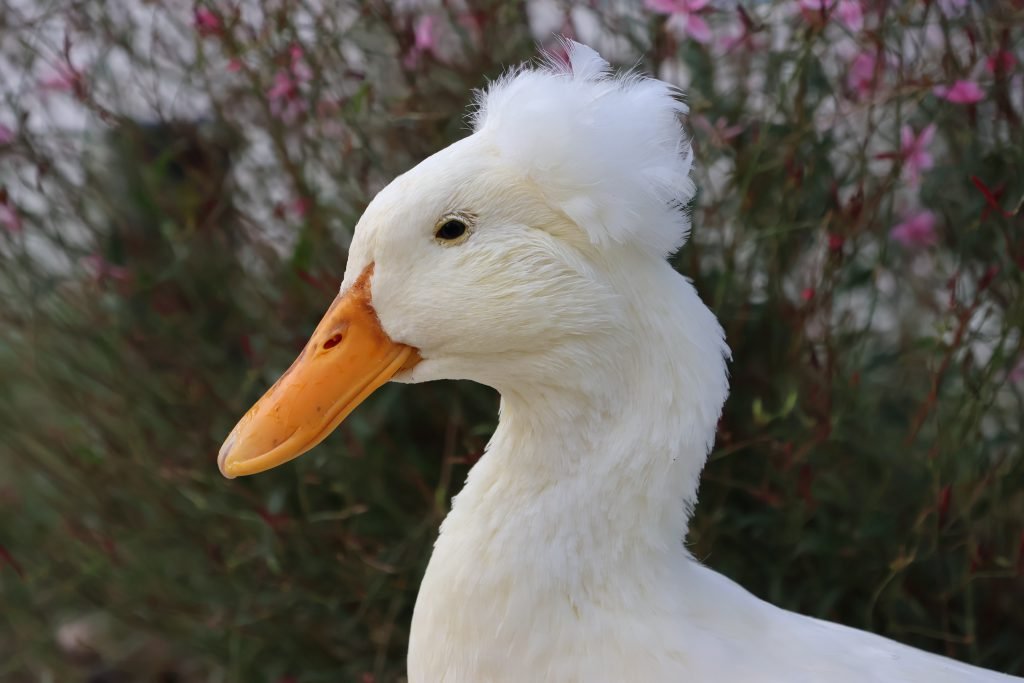Last updated on May 20th, 2024 at 11:26 am
Egg-laying problems in Ducks
Many duck and chicken owners have experienced soft-shelled eggs or egg-binding in their birds. We have recently experienced this with our duck Schnatterinchen, and I wanted to share our experience. If you want to get general information about these conditions, including their causes, prevention, and treatment, please read our blog post Soft-Shelled Eggs in Ducks – Everything You Need to Know or Breaking Down Egg Binding in Ducks: What Every Duck Keeper Should Know.
If your duck experiences this, you need to act fast! Egg-bound ducks can die within 24-48 hours!
*Products linked in this post are from our affiliate programs. We earn a small commission.
Schnatterinchens Case
Schnatterinchen started to lay eggs at about six months of age. She has had no problems so far and has laid one egg every night since she started to molt in November last year. During that time, she stopped using all of her energy for the nutrient and energy-consuming process of renewing her feathers. In addition, it was winter, and the days were colder and shorter. During this time of the year, many birds stop egg production or slow down. This is because they need a certain number of sun hours daily.
How I noticed my duck is egg-bound
After molting, her egg production resumed. However, it seemed that her body was not yet ready. In mid-January, we noticed that she was not behaving as usual. She was acting strangely that afternoon. She was lethargic and would not eat, even treats. We noticed she went to the pool and just sat there, not swimming or splashing around. So we immediately suspected that she might be eggbound and prepared a warm Epsom salt bath for her to soak in. She sat in it very calmly for over half an hour. You could tell that she liked it and felt some relief. She even allowed me to snuggle her and massage her belly. I could feel that there was an egg inside her.
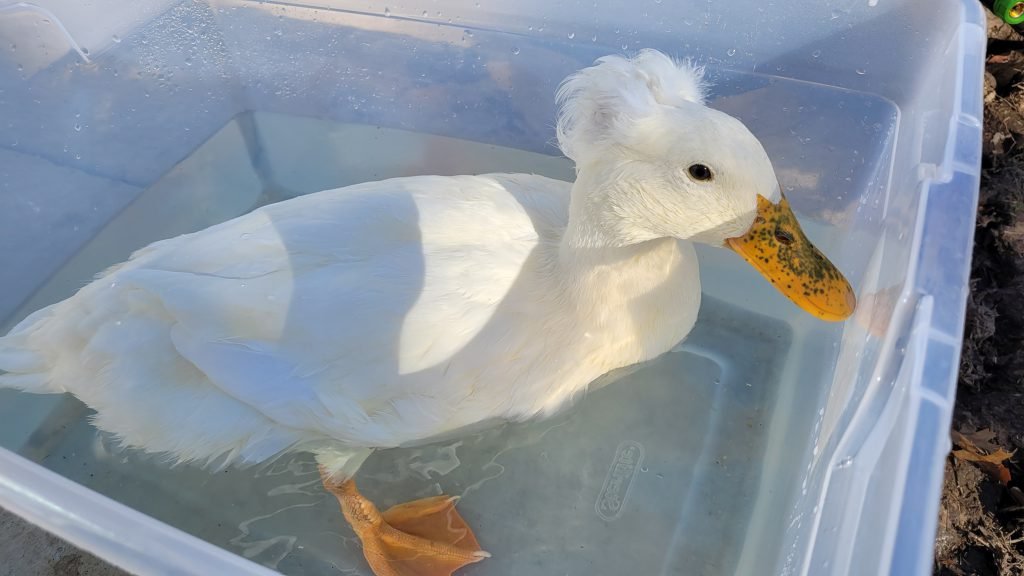
At one point, she was pumping her butt and pressed out a very weird-looking and soft-shelled egg with some tube attached.
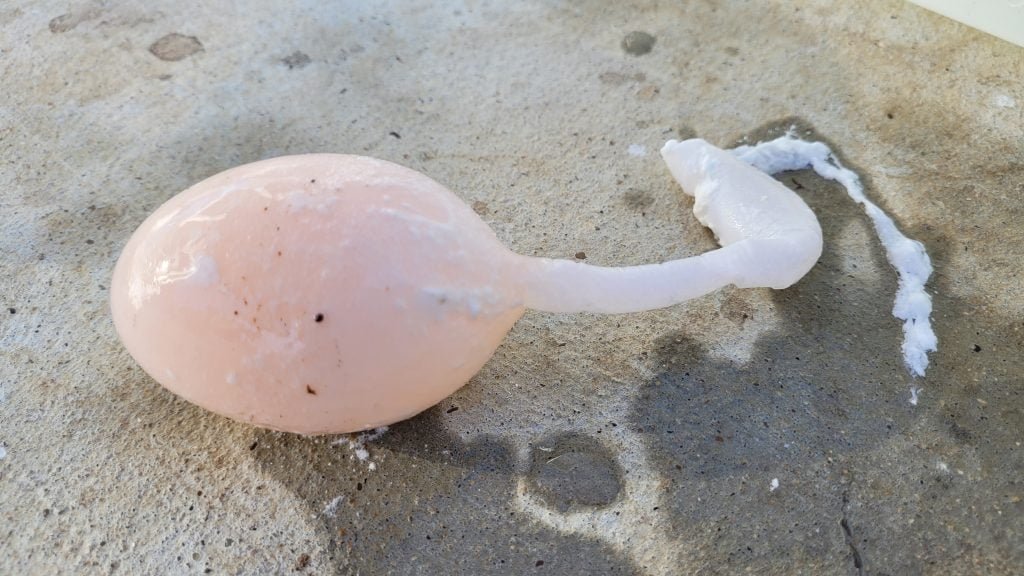
After that, she sat for another 20 minutes or so in her bath until I brought her back to the others. She was still resting for an hour or so after that event. That must have been exhausting for her. Later that day, she had her energy and appetite back. That night, she was laying a normal, hard-shelled egg, and we thought that all was back to normal again.
How it continued
Unfortunately, that was not the case. A few days later, she had another soft-shelled egg that she laid inside the pool, but she was fine otherwise and behaved normally.
The day after that, it got worse. She was lethargic again, just sitting inside the pool and not eating. We made her a warm Epsom bath again. She was sitting inside for over an hour, and you could see how miserable she was. She was shaking, her muscles were contracting, her eyes looked so sad, and she even developed some foam in her eyes. She was also very heavily breathing. I thought she wouldn’t make it.
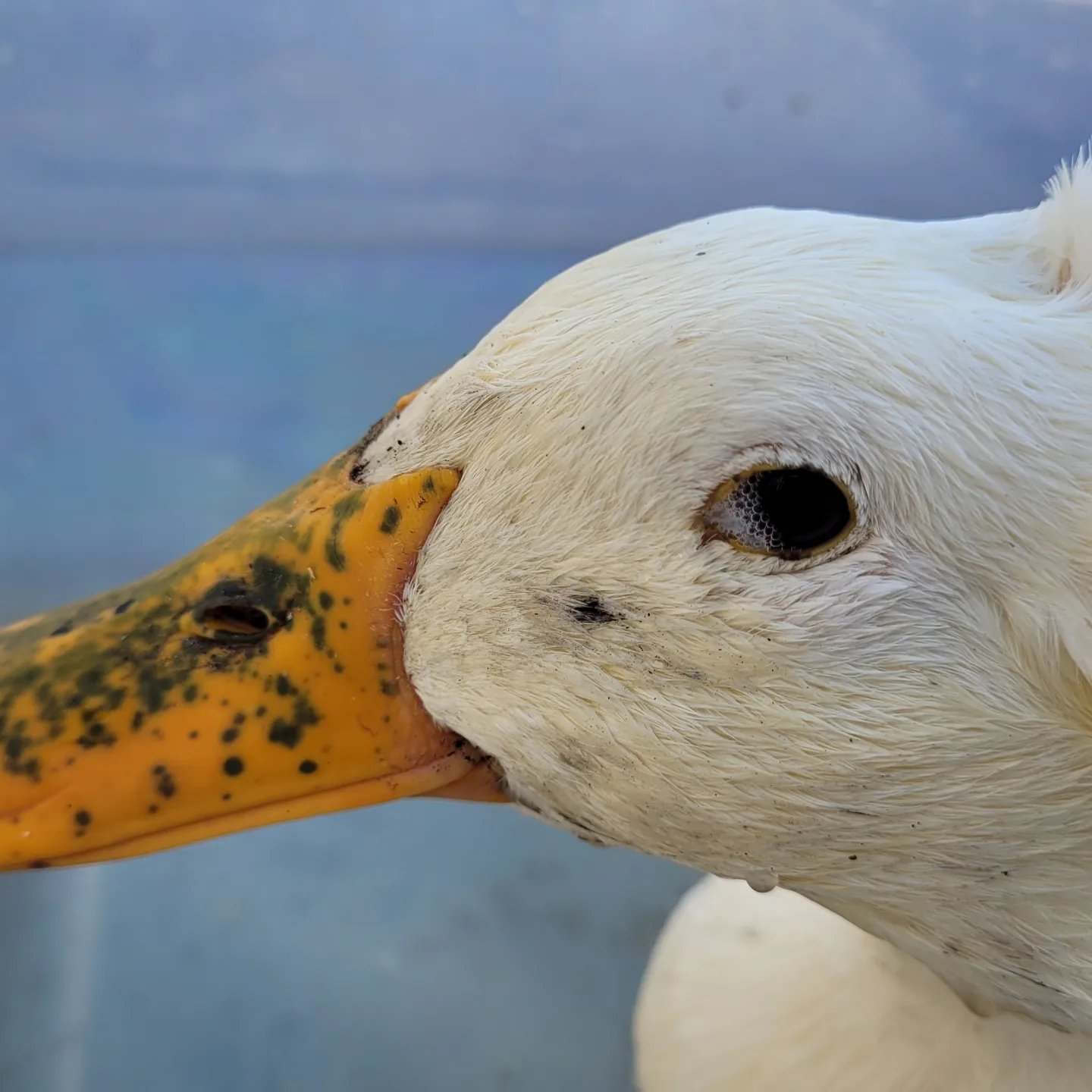
How we treated our egg-bound duck Schnatterinchen
We brought her inside so that she could rest and we could monitor her better. We did two more 1-hour long soaks. She was literally asking for it. Nothing helped. She wouldn’t pass anything. Just a bit of white residue came out. But then she seemed to feel better, at least. She was eating and playing with Krümel. I suspected that the soft-shelled egg popped inside her while she was trying to press it out and that once it popped, she felt some relief because the pressure was gone.
We also crushed supplemental calcium (for humans) and added it to her drinking water. That was all we had at hand that late. Our night was short. I checked on her multiple times. Luckily, she seemed to be okay.
There was still no egg in the morning, and we called our vet. Luckily, we got an appointment for an hour later. They did a thorough exam and also took X-rays. It turned out that my suspicion was correct, and one soft-shelled egg popped inside her.
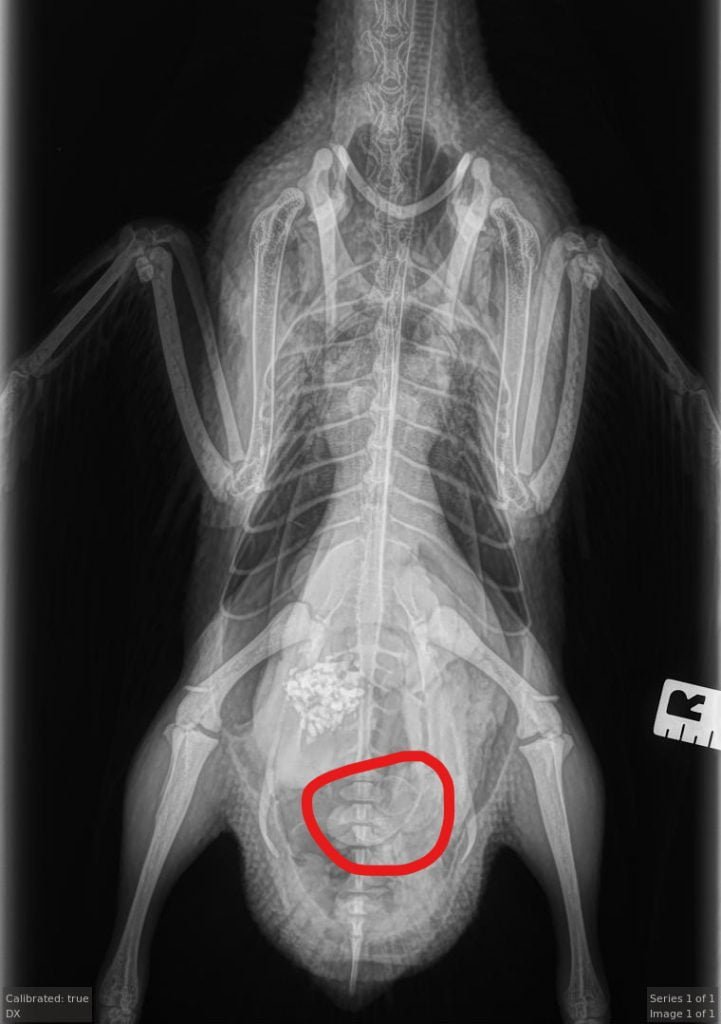
We gave her a week of antibiotics (Septra Suspension) to prevent an infection. The yolk inside her could cause an infection, and we wanted to avoid that. We also gave her anti-inflammatory/pain medication (Meloxicam) to reduce the swelling and make her more comfortable. In addition, we gave her Calcium Glubionate for the next ten days to help with a (potential) calcium deficiency. Calcium helps not only with the formation of hard eggshells but also with the muscles that need to press these eggs out. We gave her the medication orally with disposable plastic syringes (without a needle). This can be intimidating, but it is the best way to ensure she gets the full dose. We tried to trick her into mixing the meds with her favorite food, but she was too smart and didn’t eat it. When giving medication orally, you need to be careful to put it down her esophagus and not her trachea, as she could aspirate.
Tyrantfarms has a good blog post about syringe feeding, including an instructional video. We learned from them how to do it.
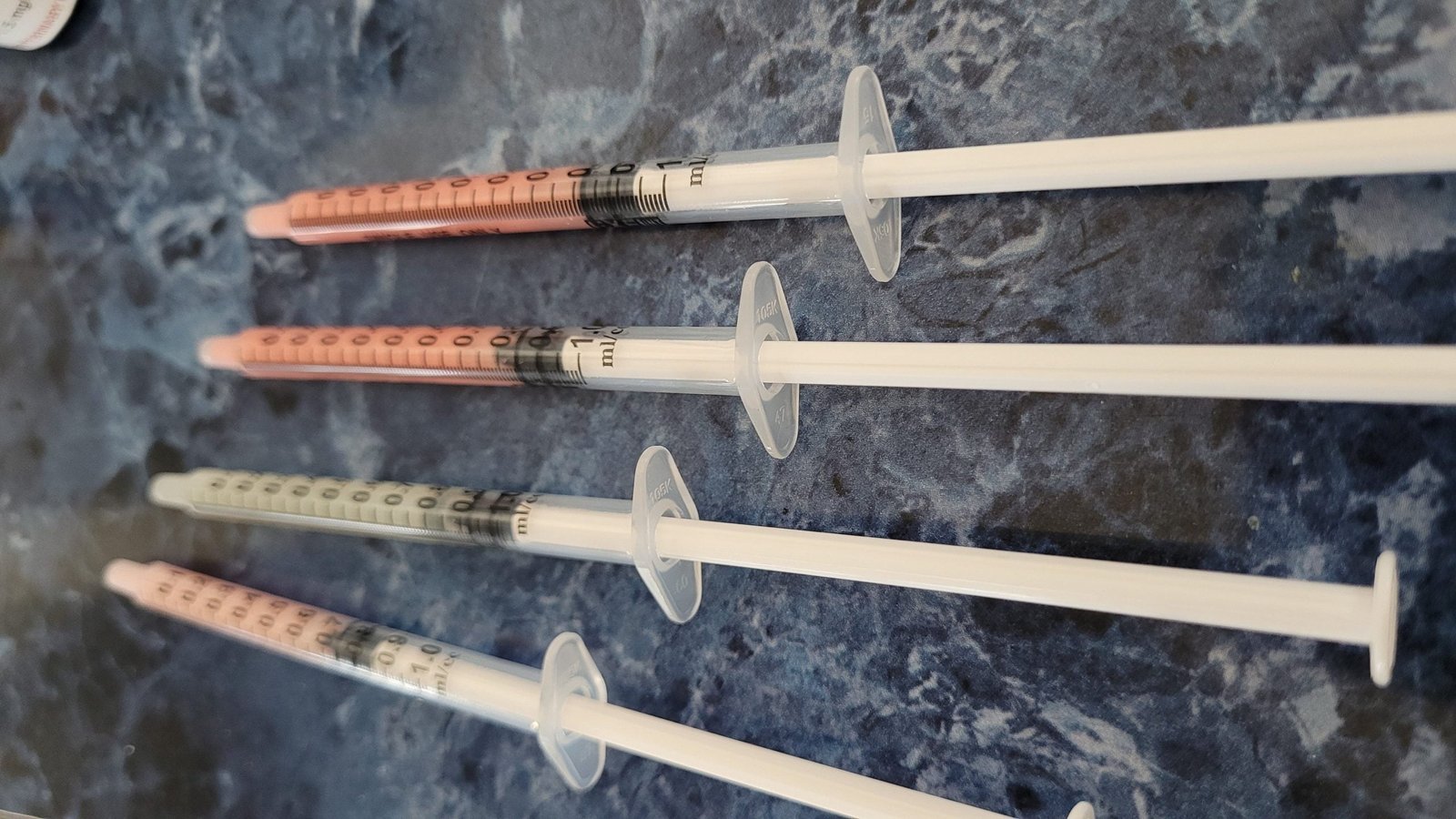
Schnatterinchen was super sweet and cuddly at the vet. She felt that we only wanted her best. Back home, she was happy to be back with her flock. She is rapidly recovering. The day we went to the vet, she dropped something that looked like a white prune, possibly some of the egg remains.
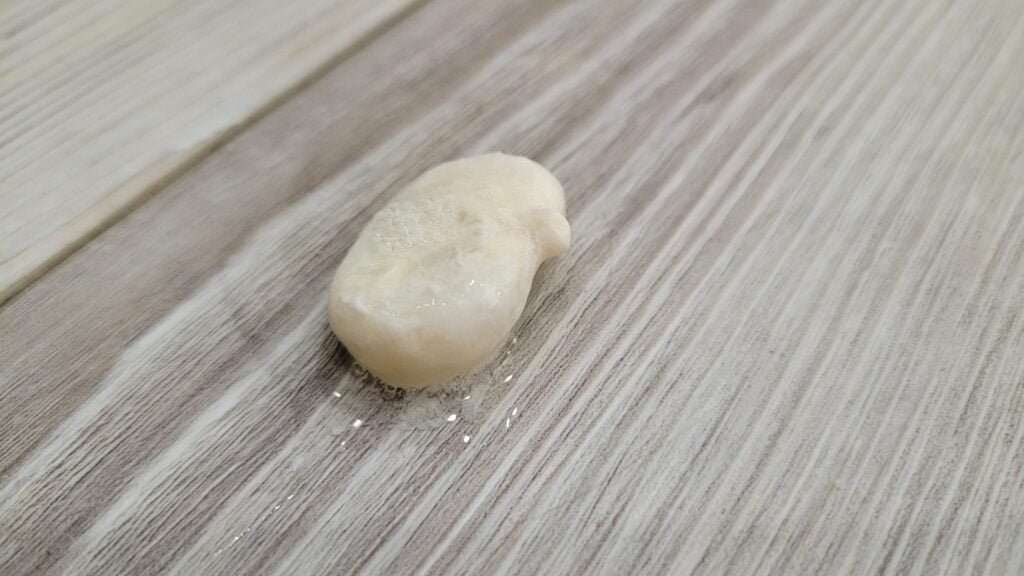
Later that day, she layed a thin-shelled egg. One day later, she layed a regular egg. She is still on the medication. We have a few more days to go, but she seems to be okay and behaved normally again. Hopefully, that was just an episode and doesn’t repeat.
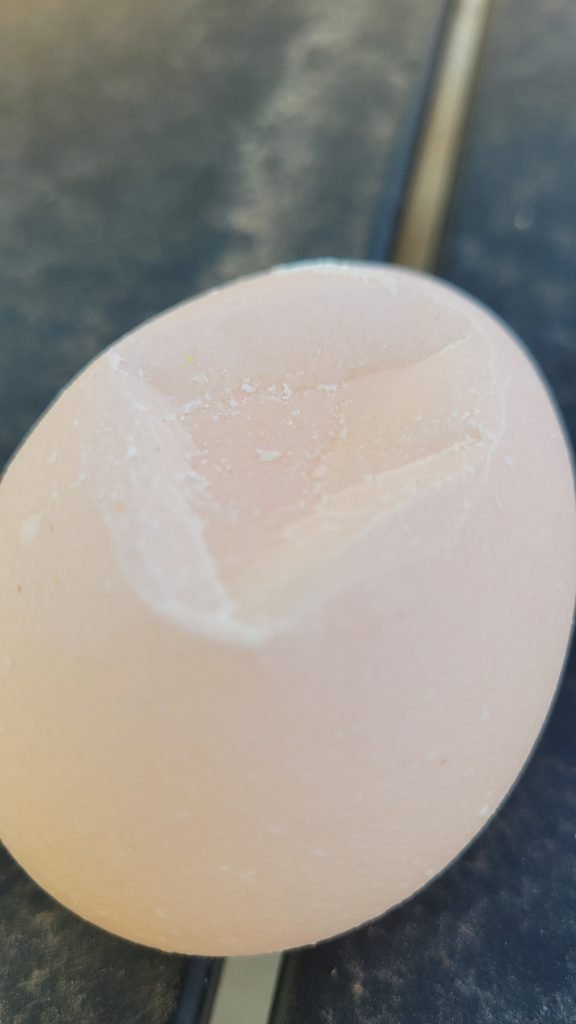
Please continue reading our blog post, Soft-Shelled Eggs in Ducks – Everything You Need to Know, if you want to learn more about soft-shelled eggs in general, their causes, treatments, and prevention.

